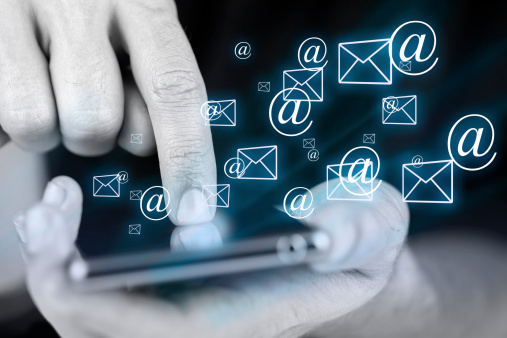
The NLRB may permit employees to use company email for union business and organizing.
Employees may soon be able to use company computers and email accounts for union and conducting union business, activities for which employers can currently discipline or even fire workers.
The National Labor Relations Board’s (NLRB) general counsel has proposed the agency reverse a 2007 Bush-era ruling that held employers can ban employees from using company email accounts for non-work purposes.
Under the current standard, companies can penalize workers for using email to engage in union activities. The only constraint on the standard is that employers must apply a blanket-ban on all non-work uses and single out only union-related communications.
Richard F. Griffin, Jr., General Counsel of the NLRB, has stated that the current approach is outdated and “more restrictive than necessary” to meet companies’ legitimate business goals. Griffin emphasized that email is now the preferred method of communication between co-workers. Instead of break rooms, cafeterias, or water coolers, he said, the digital sphere is where employees “naturally gather” to discuss non-work-related issues.
The NLRB’s General Counsel, joined by the Communication Workers of America in challenging the prevailing standard, is requesting the NLRB adopt a new approach under which employees who are permitted to use their company’s email system for work-related tasks would also be allowed to use it for union-related activities. These activities would include soliciting support for unionization or routine union business, which would only be subject to a requirement that employees “maintain production and discipline.”
If the NLRB reverses its 2007 standard, the agency would continue its trend of reconsidering Bush-era NLRB decisions. Recently, the agency proposed a rule that would require employers to give unions access to employee contact information and speed up union representation elections. If the NLRB finalizes these recent efforts, the changes would presumably expedite the union organizing process.
Christopher Coxson, co-editor of the U.S. Chamber of Commerce’s NLRB Insight and a former NLRB field attorney, stated that the shift from the current standard would “jeopardize employers’ rights to monitor their own email systems” in order to prevent illegal activity such as sexual harassment and theft, and also to manage workers’ productivity.
Furthermore, Coxson stressed that when combined with the NLRB’s recent actions that speed up the representation election process, these “troubling initiatives would further deny employers meaningful pre-election time to tell their side of the story, and would deny competent legal representation to employers faced with a union organizing campaign. Allowing unfettered access to a company’s electronic communications…would create a daunting challenge for employers.”
The NLRB’s General Counsel Griffin believes, however, that allowing employees to communicate about union activities using company email accounts is integral to modernizing the NLRB’s communication standards. While Griffin acknowledged companies have legitimate business justifications in restricting some use of company email accounts, such as protecting confidential information and preventing email viruses, he emphasized that these are insufficient to justify a blanket-ban on personal use of email. He stressed that even under a revised NLRB standard companies would be allowed to create policies protecting confidential company data and install anti-virus software to protect against viruses.
The NLRB is currently requesting amicus briefs to aid in its consideration of whether it should reconsider the 2007 standard and what the revised provision should entail.
Interested members of the public can submit a brief to the NLRB until June 16, 2014.



